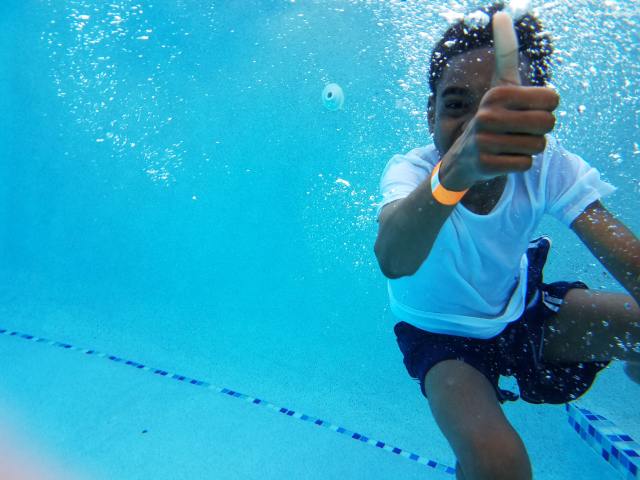While your kids are out splashing through the rest of summer, keep this new study in mind! A former college swimmer and graduate student at the University of Delaware wanted to research if exercise would boost vocabulary learning performance. The results among a group of elementary school children backed that theory up—with certain forms of activity.
The study focused on 48 participants between the ages of six and 12. All of the kids completed a word learning task, then colored for three minutes before testing on their ability to recognize the words. The exercise condition split the kids in two groups for another word learning task. Group one then completed three minutes of aerobic exercise (swimming in this study) and group two completed three minutes of anaerobic exercise (a CrossFit-like workout) before testing.

Co-author Madison Pruitt, the former college swimmer who is now a speech and language pathologist, had a hypothesis for the difference in performance based on exercise type. Because the aerobic exercise demanded less brain energy, it was easier for kids to retain information. When combined with the physical activity, it actually improved their ability to learn new vocabulary. The University of Delaware’s Department of Communication Sciences and Disorders plans to conduct a similar study with toddlers.
—Sarah Shebek
Featured image courtesy of Jeff Dunham on Unsplash
RELATED STORIES











